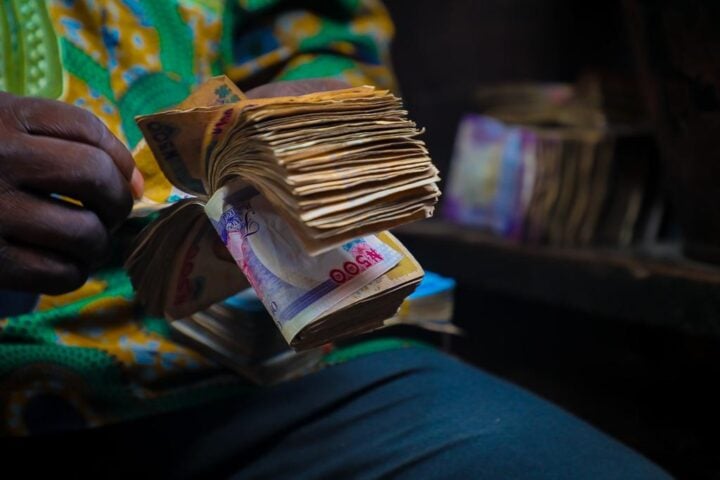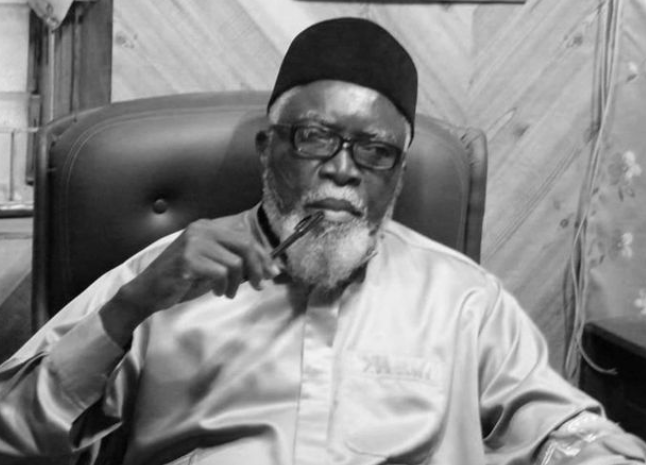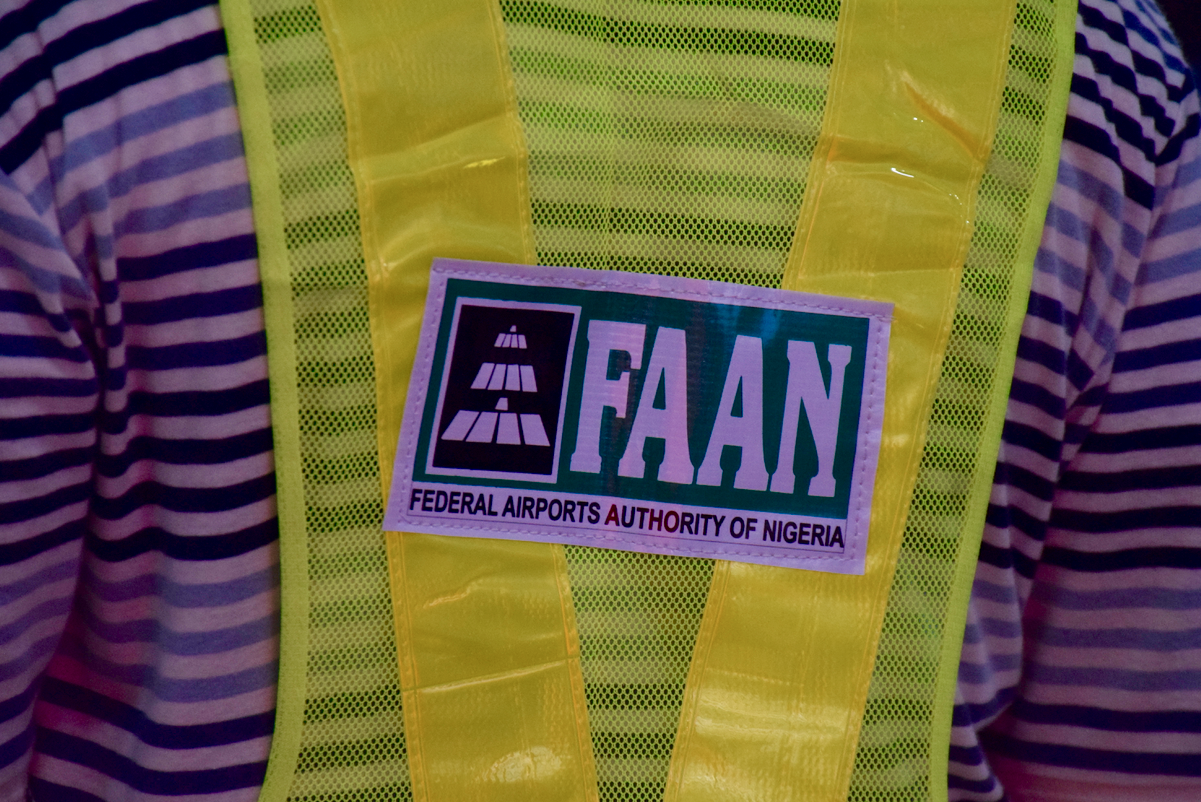A bundle of naira notes
BY NZE CHIDI DURU
In a November 20, 2023, article titled ‘Mr President and the forex concerns: An invitation to dare’, I raised particular issues of significance to the value of the Naira, our national currency, and outlined possible pragmatic measures that can be adopted by His Excellency, President Bola Ahmed Tinubu, to bolster and save the Naira from its deprecating descent into nothingness, knowing that the power to act so is not only within the realm of the official constitutional endowments of his office but, perhaps, more than that, the president has a pedigree in financial management and had shown himself to be a person of character when it comes to taking hard but ultimately impactful decisions.
Since the publication and circulation of that article, several measures have been introduced to enhance the value of the Naira relative to other global currencies. Though the impact of these measures is yet to reflect on the value of the Naira, I am persuaded that the policy application is a journey and as such, there must be a continuous review to check the potency of earlier applied policies for traction and to review the possible application of new policy (ies) as the case may be.
It is in this light that this sequel to the last article is of significance. It is, essentially, another strident call on Mr President to act to save the Naira by making our money deposit banks professionally focused on the core callings of banking as a redemptive path to the nation’s economic recovery.
Advertisement
The background to making Nigerian banks work for Nigerians is the rather excruciating decline in the value of the Naira especially as reflected in the valuation and pricing of stocks listed on the Nigerian Stock Exchange. In furtherance of the concerns I raised in the earlier article about how our stock market trading index is populated by low-cost Penny stocks which exposes various listed stocks on the market to hostile takeover by foreign investors with just a pocket full of Dollars to throw around, I desire to reiterate the fact of our eroded stock market and the imperative of money deposits banks work for the larger economy to turn things around.
For instance, in a comparative analysis of the valuation of the top five quoted stocks by market capitalisation on the Nigerian Stock Exchange and the South African Johannesburg Stock Exchange, the immediate observation is that the valuation of our stocks is equivalent to rain-beaten chickens compared to the standing of those on the Johannesburg’s market. So, while the total capitalisation of Airtel Plc is stated at $8.2bn, the highest on the Nigerian bourse, Nasper, on the Johannesburg’s bourse commands a valuation of $29bn followed by First Rand stated at $21.5bn compared to the $6.77bn valuation of MTN the second most valuable stock on the Nigerian Stock market by market capitalisation. The three other stocks on the top five list are not exactly impressive compared to their peers on Johannesburg’s market.
The stock market scenario summarises that our exchange rate has a depreciating effect on the value of not just the stock market but virtually every segment of our economic structure. If the truth must be told, the value of a sovereign country’s currency is the basis of respect and reciprocity from other sovereigns.
Advertisement
Deriving from the above, the contemplation here is to have Mr President enable a system-driven economy to salvage the declining value of our national economy. This talks about the conceptualisation and application of both pragmatic monetary and fiscal policies with the intent of changing the present odoriferous narrative.
To put this in perspective, we are all witnesses to how at a point in our history we were a cash-laden economy where our traders and merchants ferry cash across the country to effect their transactions. That period embodied the many stories of armed highway robberies when criminal elements, knew that traveling merchants would always have to carry cash, and waylaid vehicles to deprive traders and merchants of their money.
However, a paradigm shift became the order of the day as soon as the policy of the 14-day up-country chequing system changed to immediate value for the up-country chequing system. With a banking system with 24-hour clearing value no matter the geographical distance, traders and merchants need not move around with cash, a chequebook now takes care of all that trouble. This was further reinforced with Internet banking which allows for savings and withdrawals from bank branches different from branches in which accounts were domiciled. It soon became apparent that cash was no longer in transit and that was enough signal for armed robbers to abandon their ambushing of targeted traders and merchants on the highways because the best they could get would be chequebooks. That was a system-driven impact.
The same can be applied in the face of our gruelling experiences with kidnappers. Transactions with kidnappers are cash-based and in some cases, exchanges are quoted in multiple millions of Naira. This indicates that the kidnapping criminal enterprise thrives on the availability of cash. Now, a policy change that compels a truly cashless system (society) will certainly discourage kidnapping because there won’t be raw cash to feed into the transactions.
Advertisement
But to achieve this, we need Nigerian banks to be professionally focused on the core callings of banking and to be honest and transparent in their engagements. If the limit of cash withdrawal is N500,000, under no circumstance should anybody be able to withdraw more than that sum. Of course, I am not oblivious of the current effort to transform goods and services transactions to cashless, what is, however, lacking is the commitment of Nigerian banks to the policy, whereupon, anybody of influence can be availed of much cash as he or she may so desire from the banks.
It is to Mr President that we look to make this work. The Central Bank of Nigeria, its so-called independence notwithstanding, is still answerable to Mr President in many ways, thus, a strong stance from Mr President about compliance by money deposit banks to the CBN on the matter of limited withdrawals will certainly have an effect because that will translate to consequences for bad behaviours for bankers.
Beyond this is the troubling prospect of our Naira exchange rate. Again, it is to the banks that I lay the gauntlets. Once our banks are ready and willing to work in conformity with global best practices in this regard, we will certainly see improvements in the value of the Naira. This should start with a deliberate policy of de-dollarisation of the Nigerian economy. Every local transaction must be quoted in Naira.
Associated with this is that domiciliary account which must only receive inflow by transfer except the depositor is willing to explain the source(s) of the cash deposits which must align with stated official sources. This has to be the principle in the management of domiciliary accounts. The present practice of allowing cash deposits into dom-accounts is to create a trading and store of value characterisations of dollar to Naira transactions.
Advertisement
We have seen situations where banks and individuals purchase dollars in the parallel market to either hedge against inflation as a store of value or to offload as soon as the local currency depreciates to a targeted threshold. These are huge reasons for the speedy declining value of the Naira relative to the dollar and must be stopped.
The objective of this article is to direct the attention of Mr President to managing our internal economic trajectories to conserve the limited foreign exchange we earn at the moment to strengthen the value of the local currency while working on boosting foreign exchange inflow into the economy in the foreseeable future.
Advertisement
Duru (OON) is a serial entrepreneur and deputy national organising secretary of the All Progressives Congress.
Advertisement
Views expressed by contributors are strictly personal and not of TheCable.






